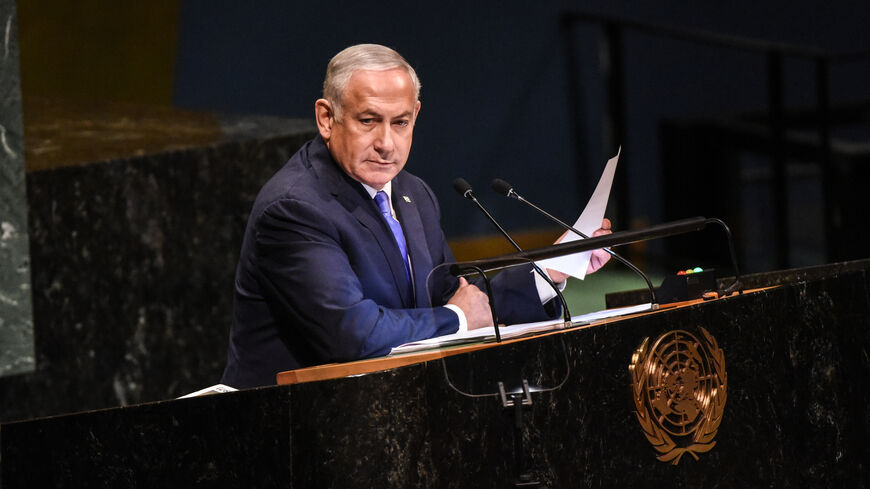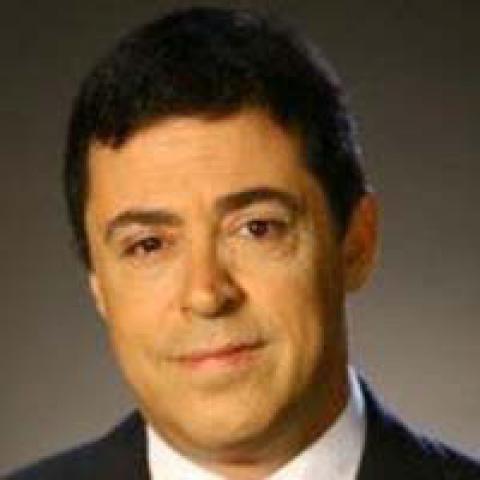TEL AVIV — After openly criticizing the Netanyahu government and refusing to invite the Israeli prime minister to the White House, the Biden administration is now seemingly trying to calm down bilateral tensions.
Barely 24 hours before the expected Tuesday White House meeting with Israeli President Isaac Herzog, President Joe Biden made a call to Prime Minister Benjamin Netanyahu.
Slow-moving contacts regarding the planned phone call had been underway for a while. A source familiar with these contacts told Al-Monitor on condition of anonymity, “Ultimately, the White House realized that meeting Herzog without even talking to Netanyahu was a bit over the top. They understood that the depth of such humiliation could drive Netanyahu to adopt even more dangerous, radical positions.”
Biden’s July 17 phone call was thus designed to ease the pressure that had been building up in the relationship since Netanyahu took office over six months ago, with its most glaring manifestation being Biden’s blatant refusal to invite the Israeli leader to the White House as a sign of displeasure with the judicial overhaul campaign being led by his government to weaken the country’s courts.
A few days earlier, Netanyahu’s frustration with this ongoing slight reached a boiling point leading him to lash out at Israel's ambassador to Washington, Michael Herzog, for his continued failure to coordinate a Netanyahu meeting with Biden.
"Netanyahu is shooting the messenger," an Israeli diplomatic source told Al-Monitor on condition of anonymity. "What does Ambassador Herzog have to do with the fact that Biden does not want to hear from Netanyahu? Even if the Israeli ambassador to Washington had been Tony Blinken, and not Mike Herzog, he would not have succeeded in convincing the administration that the current Netanyahu government is not the most extreme ever and that Netanyahu is trying to weaken Israeli democracy and take over all branches of government."
The source was echoing Biden’s own recent description of the Israeli government as the most extreme he has seen since the 1970s.
These latest developments reflect the absurd and complex state of the relationship between the two leaders and their allied states. Netanyahu’s decision upon taking office not to replace Ambassador Mike Herzog, who had been appointed by the previous government that he so hated, was surprising. Netanyahu’s highly suspicious nature has led him to fire more junior officials whose only sin was that they were appointed by the previous government. But Ambassador Herzog is a well-respected figure in the United States in general, and by the Biden administration in particular. He also happens to be the brother of President Herzog, who enjoys relatively strong public support.
Netanyahu thought that leaving Herzog at his post would make it easier for him to maneuver vis-a-vis Biden and harder for the president to oppose him. When Herzog pushed for compromise talks under his auspices between the Knesset coalition and opposition in the bitter struggle over the government’s legislative overhaul, some accused Herzog of being in league with Netanyahu, inter alia because of his brother.
The situation deteriorated this week as President Herzog prepared to travel to the United States to address a joint session of Congress and meet with Biden. The expected photo op from the Oval Office could not have been interpreted as anything but a slap in the face for Netanyahu. Herzog had planned to come away from the high-profile meeting with an invitation for Netanyahu, but Biden stepped in to avoid an all-out crisis and issued the invitation himself in his call with Netanyahu.
However, the readouts of the conversation were quite different. The American statement did not mention a specific White House invitation but did dwell on US concern over the radical policies of the Netanyahu government. The Israeli side trumpeted Netanyahu's "invitation to the United States."
Not a White House invitation
As usual, the truth lies somewhere in the middle. Biden did talk to Netanyahu about an upcoming meeting, but did not invite him to the White House. Such a meeting will likely take place on the sidelines of the annual United Nations General Assembly in the fall.
"Such a meeting is more humiliation than achievement," a senior Israeli political source told Al-Monitor on condition of anonymity. "It is the kind of meeting you get for junior leaders from the Third World, the kind that America does not really deem important. If Netanyahu is bragging about it, he is really in trouble."
The Biden administration, for its part, appears to be keeping its options open. If Netanyahu achieves a compromise with the opposition over the deeply controversial neutering of the courts, as he promised Biden in their phone call (yet again), the meeting with the US president could be upgraded to the Oval Office.
Meanwhile, anti-government protests in Israel are heating up as the Knesset nears a vote on the proposed legislation. For the second week in a row, protesters declared Tuesday a day of “rage” and “disruptions,” blocking highways, junctions and railway stations and holding a demonstration outside the Histadrut labor federation headquarters in Tel Aviv.
“Netanyahu keeps playing a double game. He promises the president in English that he will strive for the widest consensus possible [over the legislation], but instructs the radicals in Hebrew to push ahead. This will not end well,” a senior Likud party member told Al-Monitor on condition of anonymity.
The upheavals seem to have taken a toll on Netanyahu’s health. He was rushed to hospital over the weekend after fainting at home, falling and hitting his head. He was initially diagnosed as suffering from dehydration after a cruise the day before on the Sea of Galilee during extreme heat. Still, Netanyahu was hospitalized overnight in the cardiology department of Israel's largest hospital, with top cardiologists summoned to see him. He was implanted with a subcutaneous cardiac rhythm monitor and released the next day.
At the moment, Netanyahu seems to be in good form. But the 74-year-old leader, Israel’s longest ruling premier revered by many and omnipotent hero, has experienced a series of health alerts in recent months. On Yom Kippur last fall, Netanyahu fainted. His people said it happened because of the fast. This time, they said it happened "because of the sun." Whatever the reasons, the pressure cooker that is Netanyahu’s daily life cannot be good for his health.








